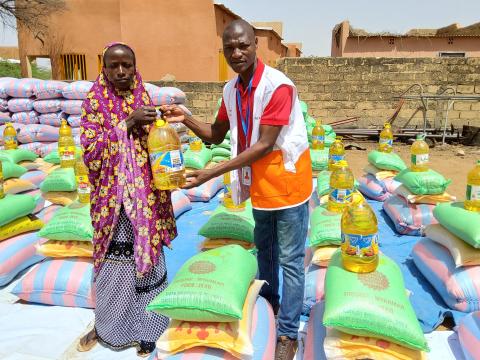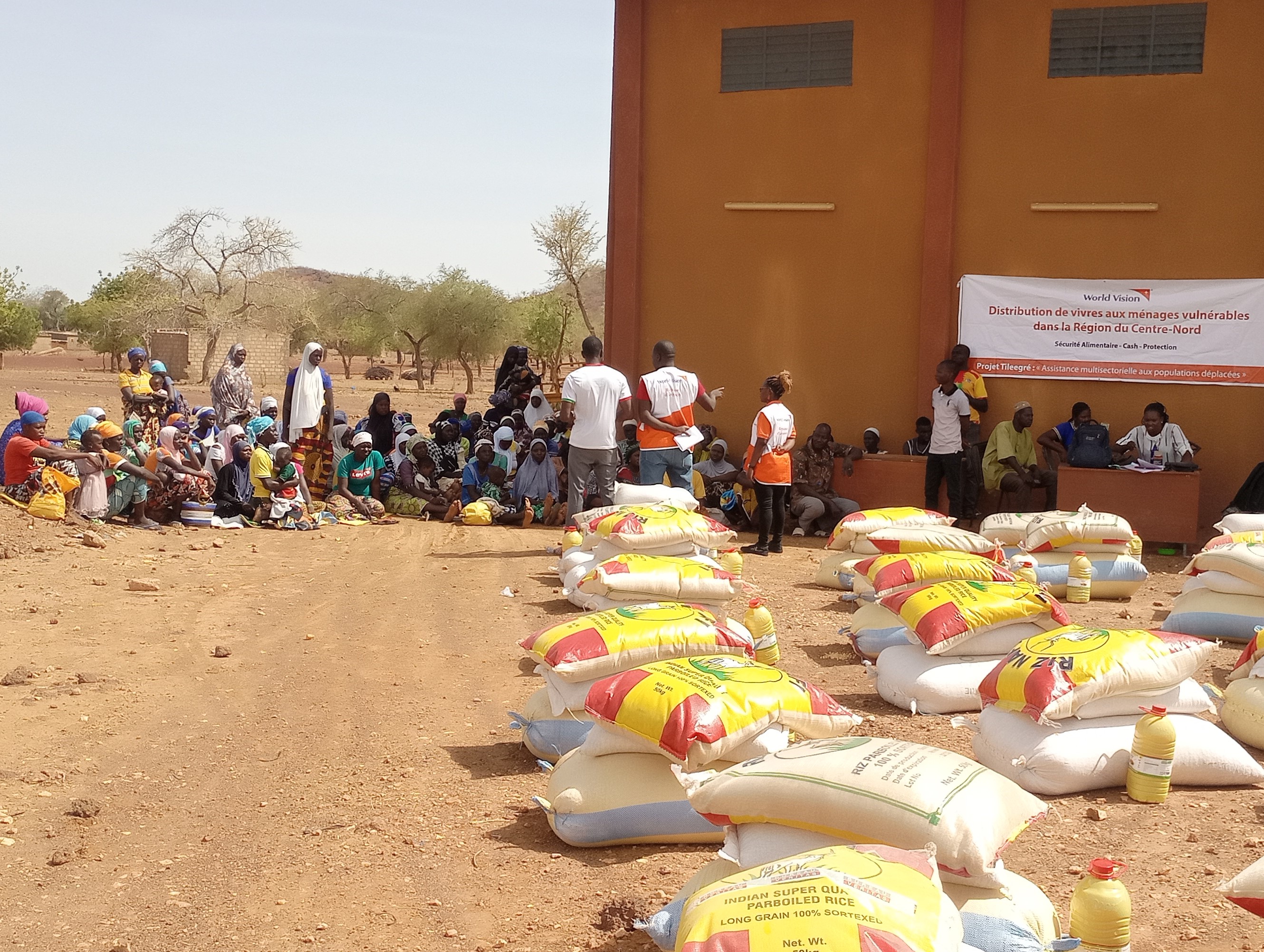Helping vulnerable households cope with food insecurity

In the Centre-North of Burkina Faso, the deteriorating security situation continues to cause massive displacement. At the end of March 2023, tce National Council for Emergency Relief and Rehabilitation (CONASUR) recorded 493,954 displaced people in the region, out of a total of more than 2 million displaced people in the country. Whole families have been forced to flee their villages, leaving behind their fields and livestock. This situation exacerbates the vulnerability of households facing food and nutrition insecurity.
According to the Harmonised Framework, more than 3.5 million people are food insecure as a result of the difficult security situation, massive displacement, food price inflation, climate change and the lingering effects of the COVID-19 crisis.
Adama, 45 years, fled his village 2 years ago to settle in Ziga. He looks after his mother, his wife and their 3 children despite his visual impairment, which severely limits his opportunities. He has been identified in his community to receive food aid from World Vision. According to him, this assistance is enough to meet his family's urgent food needs.
"I want to thank World Vision for thinking of people living with disabilities. It's a great relief to receive this aid, which will help us a lot for a while. I thank God", said Adama during the distribution in Zika commune.

The Tileegré project, which provides multi-sectoral support to people affected by the crisis in Burkina Faso, has reached 635 vulnerable households (displaced and host families) through the distribution of food parcels - consisting of maize, rice, cowpeas and oil - in the Centre-North and Sahel regions.
"I hosted two widows with about ten children. In addition to my family, there are more than thirty people in my household and it's not easy to have enough to feed all these people. I'm glad that World Vision thought of giving us food. It means a lot to us as displaced people," said Baba, another head of household helped by World Vision.
Baba comes from Taparko, in the Yalgo department. He had to flee his village because of the attacks. Now settled in Ziga, he is trying to rebuild his life: "Thanks to the generosity of the host community, we have been given a piece of land to farm, but as we are not at home, we obviously cannot have large fields. Besides, last season's harvest wasn't good," Baba explains.
The living conditions of families like Baba's prompted World Vision to lend its support by distributing food to help alleviate the suffering of people facing food insecurity. These distributions were fully funded by World Vision US, with each beneficiary receiving a food parcel valued at 74,000 FCFA, or about US$114.